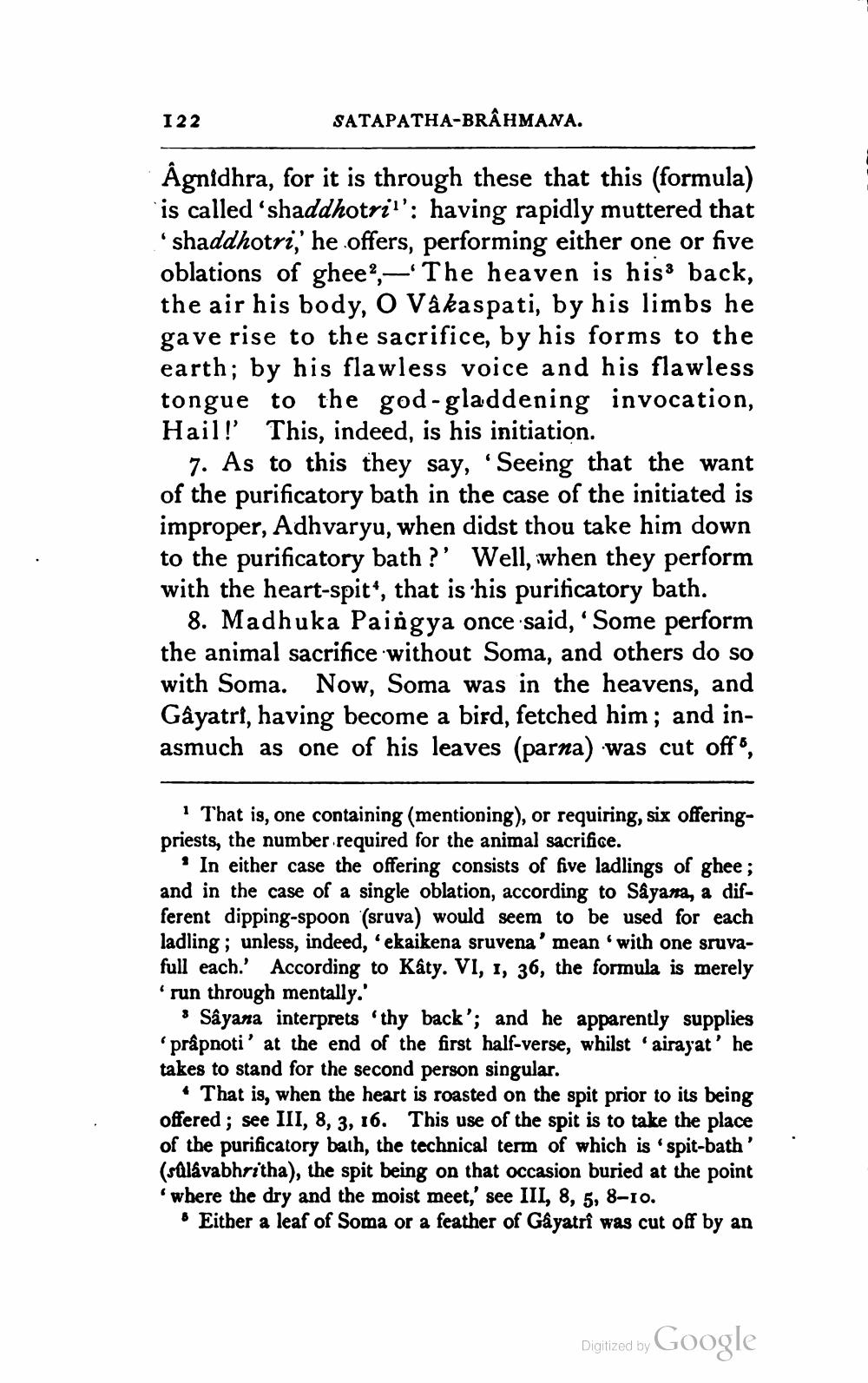________________
122
SATAPATHA-BRAHMANA.
Agnidhra, for it is through these that this (formula) is called 'shaddhotri?': having rapidly muttered that
shaddhotri,' he offers, performing either one or five oblations of ghee?,—The heaven is hiss back, the air his body, O Vâkaspati, by his limbs he gave rise to the sacrifice, by his forms to the earth; by his flawless voice and his flawless tongue to the god-gladdening invocation, Hail!' This, indeed, is his initiation.
7. As to this they say, 'Seeing that the want of the purificatory bath in the case of the initiated is improper, Adhvaryu, when didst thou take him down to the purificatory bath ?' Well, when they perform with the heart-spit*, that is his purificatory bath.
8. Madhuka Paingya once said, 'Some perform the animal sacrifice without Soma, and others do so with Soma. Now, Soma was in the heavens, and Gâyatri, having become a bird, fetched him; and inasmuch as one of his leaves (parna) was cut off,
That is, one containing (mentioning), or requiring, six offeringpriests, the number required for the animal sacrifice.
In either case the offering consists of five ladlings of ghee; and in the case of a single oblation, according to Sayana, a different dipping-spoon (sruva) would seem to be used for each ladling; unless, indeed, ekaikena sruvena' mean with one sruvafull each.' According to Kâty. VI, 1, 36, the formula is merely run through mentally.'
• Sâyana interprets thy back'; and he apparently supplies prâpnoti' at the end of the first half-verse, whilst 'airayat' he takes to stand for the second person singular.
• That is, when the heart is roasted on the spit prior to its being offered ; see III, 8, 3, 16. This use of the spit is to take the place of the purificatory bath, the technical term of which is spit-bath' (sûlavabhritha), the spit being on that occasion buried at the point where the dry and the moist meet,' see III, 8, 5, 8-10.
* Either a leaf of Soma or a feather of Gayatri was cut off by an
Digitized by Google




